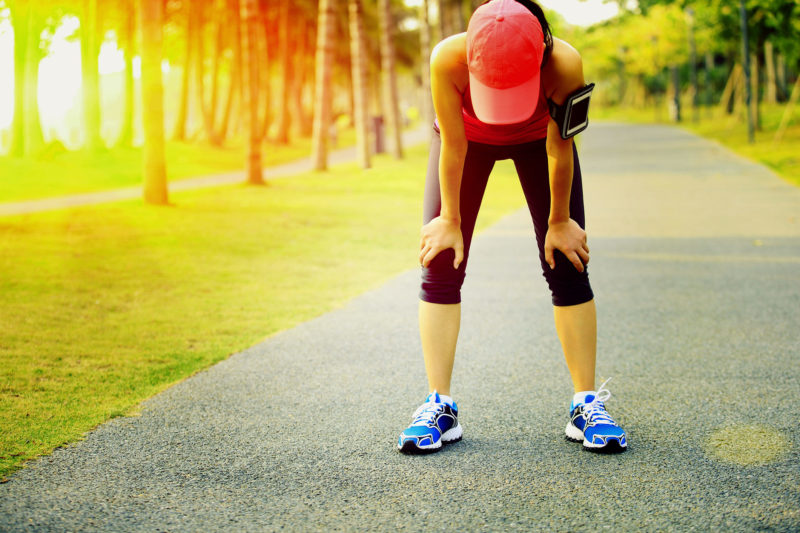The hot, humid Louisville summers can seem never ending. Last year, Louisville had its hottest September day of 98 degrees which broke the 1954 record, so it’s very likely that this heat may last all the way up until October, which is why knowing the signs of heat exhaustion is very important.
Our bodies disperse heat by physiological cooling mechanisms, including sweating for heat loss. When your body is unable to cool itself, that’s when heat exhaustion or any heat-related illness including heatstroke could happen.
Heat exhaustion symptoms will last for a day or so, but heatstroke can be fatal—so it should not be taken lightly. If you work outdoors, taking a midday walk or run, visiting the nearest amusement park, or even exercising in an un-air-conditioned gym, there’s a risk of overheating.
In severe cases that progress to heat stroke, patients can develop confusion, irrational thoughts, or seizures, which occur because the various body systems are shutting down. It’s important to seek medical attention if you experience these symptoms – with heat stroke, your core temperature can rise above 104 degrees.
Here’s the top 5 tips to avoid heat exhaustion:
Hydrate, Hydrate, Hydrate
Can’t say it enough – HYDRATE! It’s recommended to drink plenty of fluids the day before and the day of physical activity – so if you know you’re going to be out in the sun, hydrate at all times prior. Hydration helps your body maintain a healthy temperature and because less water means less sweat, dehydration can prevent your body from cooling itself.
Keep a drink handy that contains salt, electrolytes, and small amounts of sugar, such as Gatorade or Powerade to replenish those substances you have lost while sweating.
Cool Off When You Can / Cool Off in Water
The most effective cooling technique if you start to overheat is to immerse in cold water – however be cautious not to submerge your entire head all at once. If you plunge from overheating to ice cold water too quickly, your body could be at risk of shock. If no tub or body of water is close, use soaked towels and trade them for fresh cold ones often.
Find a Breeze
If you know you’ll be outdoors during hot temps, take a handheld or small battery-operated fan with you. If you’re working out, turn on the fan or open a door—do what you need to find airflow. Movement in the air helps to improve evaporative cooling of the skin via sweat, and the cooler your body can stay in the heat.
Wear Appropriate Clothing
A wide-brimmed hat and light/loose fitting clothing is the best for hot summer days. Also consider an umbrella, or awning if you’re at a park, beach or any outdoor setting (even eating lunch). The less exposure to the sun the best chances of avoiding any heat injury.
Mind the Temperature and Time
Be cautious and aware of the time of day you plan to be outside – try to avoid the peak heat hours between noon and 4 p.m. – early mornings and late evenings are the coolest times of the day. Check the local news for the heat index, or the combination of the temperature and humidity levels, which can also be found on a mobile app or online. When you see heat indexes in the high 90s or above, be especially careful about the amount of time you spend outside.
If you can’t avoid the time of day you plan to be outside, prepare with the above suggestions such as cooler clothing, fans, and hydration.
Stay healthy all year round will help limit your chances of heat injury. Call Our Family Direct Primary Care with any health-related needs!

